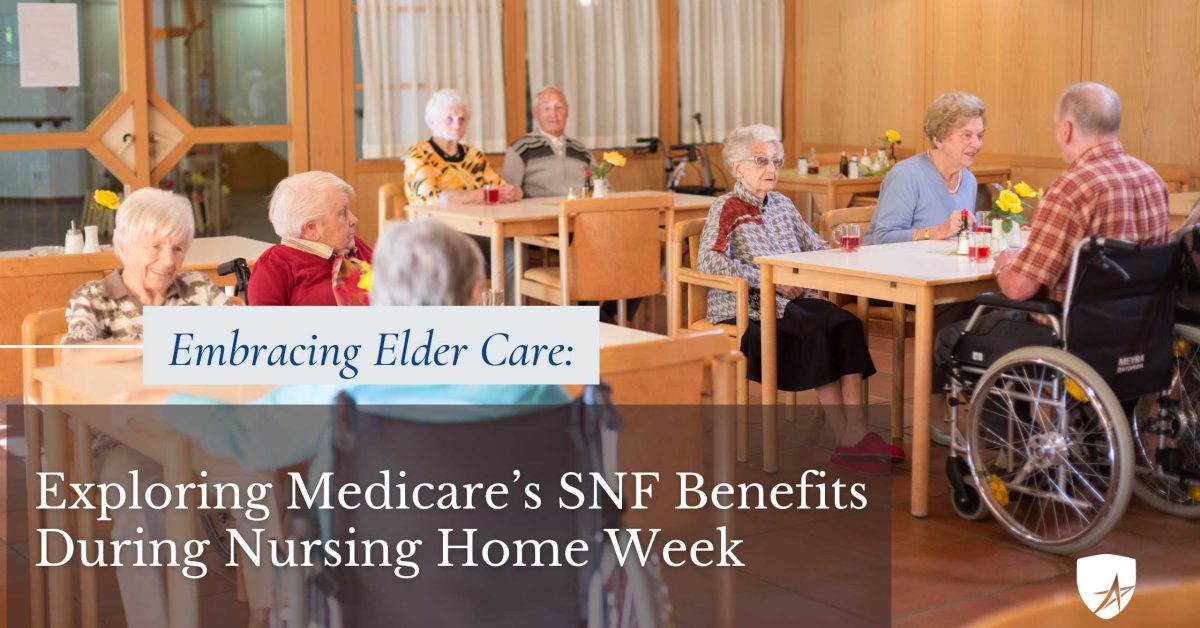As we observe Nursing Home Week, we want to take a moment to acknowledge the dedicated nurses, caregivers, and staff who provide round-the-clock care to our loved ones. This week serves as a reminder of the commitment to ensuring the well-being and comfort of our elderly population. For seniors and their families, understanding how Medicare intertwines with nursing care is crucial for planning and ensuring access to the necessary services.
Medical Coverage for Nursing Home Care
Nursing homes provide a variety of services and personal care assistance. Medicare coverage for nursing homes, however, varies depending on factors like the specific facility, required services, and duration of stay.
Medicare coverage depends on:
- State and federal laws.
- National coverage decisions made by Medicare.
- Local coverage decisions made by companies.
Medicare Part ASkilled Nursing Facility (SNF) Care: extends coverage for skilled nursing facility (SNF) care under specific conditions. This encompasses a spectrum of services for a limited time, including the following:
- Hospital inpatient care.
- Skilled nursing facility care.
- Nursing home care.
- Hospice.
- Home health care.
To qualify for Medicare-covered SNF care, a beneficiary must have undergone hospitalization for a minimum of three consecutive days and necessitate skilled care or rehabilitation services that can only be administered within the confines of a skilled nursing facility.
*Note that a patient must check in to a skilled nursing facility within 30 days of leaving the hospital. On top of that, it must be for the same illness or condition related to the hospital stay.
Duration of Medicare-Covered SNF Care:
- Medicare encompasses coverage for up to 100 days of SNF care per benefit period. Nonetheless, coverage extending beyond 20 days mandates the beneficiary to bear a daily coinsurance amount.
- It’s incumbent upon individuals to familiarize themselves with the criteria governing continued Medicare coverage in an SNF setting, along with the prospective out-of-pocket expenses entailed.
Medicare Advantage Plans (Part C) and Nursing Care:
- Certain beneficiaries may be enrolled in Medicare Advantage (Part C) plans, which are dispensed by private insurance entities sanctioned by Medicare. These plans frequently encompass coverage for skilled nursing care, albeit the specifics may vary.
- Beneficiaries enrolled within Medicare Advantage plans should meticulously scrutinize their plan’s coverage nuances, inclusive of any stipulations or prerequisites concerning nursing care.
Long-Term Care and Medicare:
- It’s imperative to discern that Medicare typically refrains from extending coverage for long-term care in nursing homes for protracted durations. Long-term care requisites, such as assistance with activities of daily living (ADLs) or custodial care, are generally excluded from Medicare coverage.
- Individuals may find themselves compelled to explore alternative avenues, such as long-term care insurance, In-Home Health Care, or Medicaid, to defray the costs associated with prolonged nursing home stays.
In-Home Health Care: A Viable Alternative: In-home health care provides a valuable alternative for individuals requiring assistance with daily activities after a hospital stay. This option allows individuals to receive care in the comfort of their own homes, maintaining a sense of independence and familiarity. In-home health care services can include:
- Meal planning/preparation
- Assistance with dressing, bathing, toileting
- Light housekeeping
- Accompany to doctor’s visits and other appointments
In-home health care plans are available at various levels and do not have age requirements or underwriting, making them an affordable option for seniors and their families. This option is especially beneficial after a hospital stay when care is needed but does not meet the requirements for nursing facility coverage under Medicare.
Medicare coverage in nursing homes is a vital resource for elderly and disabled individuals in need of skilled nursing care. While it comes with limitations and eligibility requirements, it serves as a crucial safety net for those who might otherwise struggle to afford necessary care. Knowing and exploring your options to receiving care can greatly impact your quality of life and peace of mind. If you would like more information and guidance on your Medicare coverage, skilled nursing facility benefits, or in-home health care plans, please don’t hesitate to contact us today.

